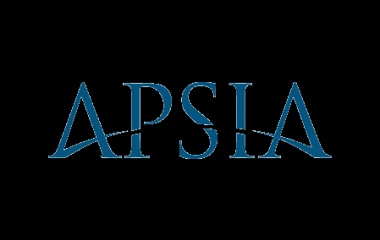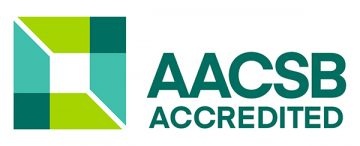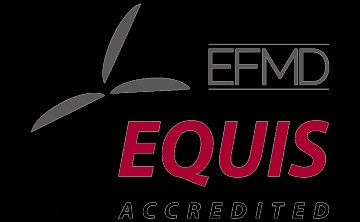
Dual Degree in Business Administration & Political Science
- Home
- Studies
- Undergraduate Degrees
- Dual Degree In Business Administration & Political Science
A DISTINCTIVE DUAL DEGREE IN BUSINESS ADMINISTRATION & POLITICAL SCIENCE
The study plan for the Dual Degree in Business Administration & Political Science is designed to provide you with a comprehensive and balanced study plan that seamlessly integrates courses from both disciplines. The curriculum has been crafted to foster a robust understanding of business principles and political dynamics, emphasizing their interconnectedness and practical relevance in today’s global landscape. You will engage in coursework that builds a strong foundation in both disciplines while exploring specialization in the areas that interest you most.
Over five years, you’ll participate in experiential learning opportunities, such as study-abroad programs, cultural immersion experiences, industry projects and networking events. These experiences will deepen your understanding and application of theoretical knowledge in real-world contexts, preparing you to navigate complex challenges in both business and political environments with confidence and insight.

DUAL DEGREE IN BUSINESS ADMINISTRATION & POLITICAL SCIENCE
LEARN MORE ABOUT OUR Dual Degree in Business Administration & International Relations
Year 1: Building Foundational Knowledge and Skills
The first year establishes a solid foundation for the Dual Degree in Business Administration + Political Science. Courses including Microeconomics, Introduction to Political Science, Political Thought, Statistics and different business subjects help students build a solid foundation. Students gain applicable experience through the Data Management Lab and the Policy Innovation Lab, while developing professional skills like policy writing and public speaking. The curriculum fosters an appreciation for humanities, entrepreneurship and international collaboration.
Year 2: Practical Applications and Policy Design
The second year applies foundational knowledge to practical scenarios. To achieve this, students enroll in courses like Democracy and Institutions, Comparative Politics, and Behavioral Science. Business subjects cover finance and numeracy, with real-life projects in entrepreneurship and marketing. Different labs involving policy design, public policy and artificial intelligence also offer direct experience, enhancing students’ policy design and business strategy skills. Technology courses introduce cross-disciplinary learning and innovation.
Year 3: Strategic Implementation and International Perspectives
The third year has students implementing and evaluating policies while continuing their business studies. Topics such as strategic foresight, political risk, public finance, strategy and supply chain management expand upon earlier knowledge. A cross-university Challenge project provide pertinent applications. In the second semester, students choose between electives, study abroad programs or internships, allowing them to tailor material to their interests and career aspirations.
Year 4: Advanced Integration and Practical Training
The fourth year emphasizes the advanced integration of business administration and political science knowledge with practical training. Students choose from various electives and internships, which provide opportunities to apply skills in real-world settings. A comprehensive work-integrated learning program, including professional residencies and personalized assignments, supplies relevant hands-on experience. As the penultimate stage, students also begin to prepare for upcoming thesis projects and final team assignments in the fifth year.
Year 5: Capstone Projects and Final Preparations
In the final year, students continue their specialization at IE University or partnering institutions. The curriculum includes a thesis project, a major team assignment and a capstone strategic course, combining all aspects of the Dual Degree in Business Administration + Political Science. Additional electives and internships help students further refine their skills and knowledge. The program ’s final semester ensures a cohesive wrap-up, celebrating achievements and preparing students for successful careers in business and politics.
Learning a new language can open up a world of new opportunities
IE University considers multiple language acquisition to be a key element of its educational model, leading to success in both work and study.
The Language Center at IEU is proud to offer students the possibility to study a wide range of languages, including French, German, Portuguese, Chinese, Arabic, Spanish, and English. With such a large variety of options, our students are able to personalize their academic path to meet their future career plans and objectives.

The Language Center at IEU
The Language Center helps students develop their multilingual communicative skills to help them flourish in the international labor market.
Acreditations
COMPETENCES
Basic competences
GENERAL COMPETENCES
- Analyze companies’ needs to adapt instruments, products and services to their specific features.
- Organize and plan for situations that pose a challenge for decision-making in light of a company’s internal problems.
- Collect, analyze and summarize information from different sources in order to later apply it to business management.
- Ability to communicate in English orally and in writing.
- Adapt a company’s products and services using data analysis instruments.
- Define mechanisms enabling adaptation to new situations in the business environment.
- Develop arguments that demonstrate a critical understanding of political and social phenomena.
- Apply the knowledge acquired to develop interpretations of current economic phenomena and argue the case.
- Make use of historical and current documentary sources.
- Develop the technical IT competences necessary for a professional setting.
- Present a global vision with regards to trends and debates in international relations.
- Evaluate the economic dimension of international public and private policies.
- Plan and implement public and private policies at the international level, providing justification for their implementation.
- Use different information sources and channels to create and convey information, ideas, problems and solutions related to current international affairs.
- Train to conduct research and studies on the international sphere and its political, economic, social and cultural facets.
- Possess a critical understanding of the legal implications of international relations.
- Develop public- and private-sector strategies for real economic contexts.
- Communicate orally and in writing in both Spanish and English in a professional and academic context.
- Analyze and consider contemporary challenges and the social and cultural complexity of globalized society through a critical and creative lens.
- Apply suitable ethics-based judgements to all professional activities and relationships, with the ability to differentiate between personal and professional life.
- Apply and adapt knowledge and competences to a variety of international academic and professional contexts.
- Develop flexible problem-solving tools for organizational management that take the satisfaction of different stakeholders into consideration.
PROGRAM-SPECIFIC COMPETENCES
- Apply solutions that are efficient in a competitive market based on national and international economic knowledge.
- Manage a small company or organization, understanding its competitive and institutional position and identifying its strengths and weaknesses.
- Understand the duties of the different management bodies of a medium or large company or organization in order to perform the management tasks entrusted to it.
- Evaluate a company’s current situation and foreseeable future in terms of specific situations and markets, using relevant records to enable decision-making.
- Create management projects for a company as a whole or its different functional units, identifying relevant economic information sources and their contents.
- Recognize a company’s economic, global and structural situation within the labor market in which it operates, including the subject and/or the company.
- Interpret the current socioeconomic context based on basic historical, philosophical and political knowledge.
- Apply the appropriate business diagnostics tools and techniques to each stage of development in order to obtain better evaluation and decision-making at a company.
- Use the most appropriate models and research methods for a given company in light of its context and normal spheres of business development.
- Use knowledge of information and communication technologies in all professional activities.
- Apply professional judgment based on using technical instruments to analyze problems.
- Identify and manage the conditions enabling employees’ personal development in everyday strategic business settings.
- Identify the differences, problems and needs present within an organization in order to properly manage them.
- Access, recognize and use relevant data and information in business settings.
- Create recommendations for action by applying the legal framework in force.
- Use cost accounting to make company decisions in collaboration with different corporate stakeholders.
- Apply novel business ideas in order to design an entrepreneurial reality.
- Use market strategies in different sectors analytically.
- Compile, distribute and present statistical data for software development in economics settings.
- Apply IT solutions to corporate issues, taking the latest advances in the sector into consideration.
- Understand classical and contemporary political theories.
- Analyze and compare the structure and functioning of the main political systems.
- Recognize the paradigms, concepts and principles of political science.
- Understand microeconomic and macroeconomic models and obtain specific information from them.
- Be capable of identifying the key aspects of an economy and the operation of local and global markets.
- Understand international relations’ evolution as a discipline by placing it in the corresponding political, economic, legal and social contexts.
- Understand the historical dimension and evolution of the political and social processes hitherto in play in international relations.
- Produce, gather, analyze and interpret data and statistics.
- Understand the concepts, framework of application and theoretical foundations of international relations.
- Justify political and social stances in line with the discipline’s different theories.
- Understand the relationships between the different stakeholders in play as a function of a region’s current economic policy model.
- Understand the legal aspects and decision-making processes used as a part of nations and international organizations’ foreign policies in accordance with international law.
- Evaluate cases related to international jurisdiction, applicable law and the recognition and enforcement of judgements.
- Understand the structure, organization and operation of different types of international and supranational institutions, with particular focus on the European Union and the challenges it will face in the future.
- Analyze the course of global issues such as international terrorism, challenges in health and education and development cooperation.
- Understand and analyze the international economic environment and the economic dimension of international institutions using economic and financial tools in line with a given policy direction.
- Analytically connect past and current knowledge and processes through interdisciplinary analysis.
- Design communication strategies and apply political communication techniques.
- Apply the knowledge acquired to experimentation and the generation of new knowledge.
- Integrate and deploy all knowledge acquired throughout the program.
TRANSVERSAL COMPETENCES
- Identify the main cultural identity traits that characterize today’s world by understanding the main contemporary ideological trends.
- Behave professionally in accordance with the core principles and ethics of the profession.
- Manage unforeseen situations by being able to adapt to organizational changes.
- Use knowledge of the discipline to analyze and evaluate current situations.
- Form a part of interdisciplinary and multicultural teams to achieve shared goals in a diverse environment.
- Work actively in an international context.
- Develop decision-making competences and an entrepreneurial mindset.
- Create collaboration plans for partnerships between public and private institutions.
APPLICABLE REGULATIONS OF THE PROGRAM
FREQUENTLY ASKED QUESTIONS
What are the admission requirements for a Dual Degree in Business Administration and Political Science?
Admission requirements for the Dual Degree in Business Administration and Political Science at IE University include a high school diploma or equivalent, strong academic performance, a personal statement, letters of recommendation, and proficiency in English.
What types of subjects will I take in a Dual Degree in Business Administration and Political Science program?
In the Dual Degree in Business Administration and Political Science program, you will take subjects such as economics, management, marketing, political theory, international relations, public policy, and strategic management.








